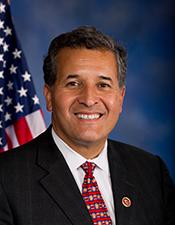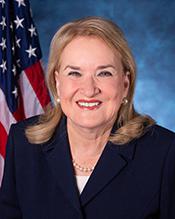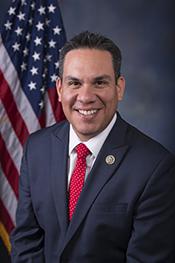0
0
0
Homeownership for DREAMers Act
12/15/2023, 3:56 PM
Summary of Bill HR 2397
The Homeownership for DREAMers Act, also known as Bill 118 hr 2397, is a piece of legislation introduced in the US Congress. The bill aims to allow individuals who are recipients of the Deferred Action for Childhood Arrivals (DACA) program, also known as DREAMers, to be eligible for Federal Housing Administration (FHA) loans for the purpose of purchasing a home.
Currently, DACA recipients are not eligible for FHA loans, which can make it difficult for them to achieve the American dream of homeownership. The Homeownership for DREAMers Act seeks to address this issue by allowing DACA recipients to qualify for FHA loans, provided they meet certain criteria such as having a valid work permit and meeting credit requirements.
Supporters of the bill argue that it is important to provide DREAMers with the opportunity to become homeowners, as homeownership is often seen as a key component of achieving financial stability and building wealth. By allowing DACA recipients to access FHA loans, the bill aims to help DREAMers achieve their homeownership goals and contribute to the economy. Opponents of the bill may argue that DACA recipients should not be given access to federal housing assistance, as they are not legal residents of the United States. They may also raise concerns about the potential impact of the bill on the housing market and the availability of FHA loans for other borrowers. Overall, the Homeownership for DREAMers Act is a piece of legislation that seeks to address the barriers that DACA recipients face in achieving homeownership. It is currently being considered in Congress, and its outcome will have implications for the ability of DREAMers to access FHA loans and pursue the American dream of owning a home.
Currently, DACA recipients are not eligible for FHA loans, which can make it difficult for them to achieve the American dream of homeownership. The Homeownership for DREAMers Act seeks to address this issue by allowing DACA recipients to qualify for FHA loans, provided they meet certain criteria such as having a valid work permit and meeting credit requirements.
Supporters of the bill argue that it is important to provide DREAMers with the opportunity to become homeowners, as homeownership is often seen as a key component of achieving financial stability and building wealth. By allowing DACA recipients to access FHA loans, the bill aims to help DREAMers achieve their homeownership goals and contribute to the economy. Opponents of the bill may argue that DACA recipients should not be given access to federal housing assistance, as they are not legal residents of the United States. They may also raise concerns about the potential impact of the bill on the housing market and the availability of FHA loans for other borrowers. Overall, the Homeownership for DREAMers Act is a piece of legislation that seeks to address the barriers that DACA recipients face in achieving homeownership. It is currently being considered in Congress, and its outcome will have implications for the ability of DREAMers to access FHA loans and pursue the American dream of owning a home.
Congressional Summary of HR 2397
Homeownership for DREAMers Act
This bill prohibits federal mortgage providers from limiting insurance eligibility on the basis of the mortgagor's participation in the Deferred Action for Childhood Arrivals Program.
Read the Full Bill
Current Status of Bill HR 2397
Bill HR 2397 is currently in the status of Bill Introduced since March 29, 2023. Bill HR 2397 was introduced during Congress 118 and was introduced to the House on March 29, 2023. Bill HR 2397's most recent activity was Referred to the House Committee on Financial Services. as of March 29, 2023
Bipartisan Support of Bill HR 2397
Total Number of Sponsors
1Democrat Sponsors
1Republican Sponsors
0Unaffiliated Sponsors
0Total Number of Cosponsors
4Democrat Cosponsors
4Republican Cosponsors
0Unaffiliated Cosponsors
0Policy Area and Potential Impact of Bill HR 2397
Primary Policy Focus
Finance and Financial SectorAlternate Title(s) of Bill HR 2397
Homeownership for DREAMers Act
Homeownership for DREAMers Act
To clarify that eligibility of certain mortgages with Federal credit enhancement may not be conditioned on the status of a mortgagor as a DACA recipient if all other eligibility criteria are satisfied, and for other purposes.
Comments
Sponsors and Cosponsors of HR 2397
Latest Bills
National Defense Authorization Act for Fiscal Year 2026
Bill S 1071December 11, 2025
Electric Supply Chain Act
Bill HR 3638December 11, 2025
State Planning for Reliability and Affordability Act
Bill HR 3628December 11, 2025
Increasing Investor Opportunities Act
Bill HR 3383December 11, 2025
ASCEND Act
Bill S 1437December 11, 2025
Providing for consideration of the bill (H.R. 3001) to advance commonsense priorities.
Bill HRES 486December 11, 2025
Snow Water Supply Forecasting Reauthorization Act of 2025
Bill HR 3857December 11, 2025
Federal Firefighters Families First Act
Bill HR 759December 11, 2025
ADS for Mental Health Services Act
Bill S 414December 11, 2025
Providing for consideration of the bill (H.R. 2550) to nullify the Executive Order relating to Exclusions from Federal Labor-Management Relations Programs, and for other purposes.
Bill HRES 432December 11, 2025
U.S. Citizenship Act
Bill HR 3194January 4, 2025


